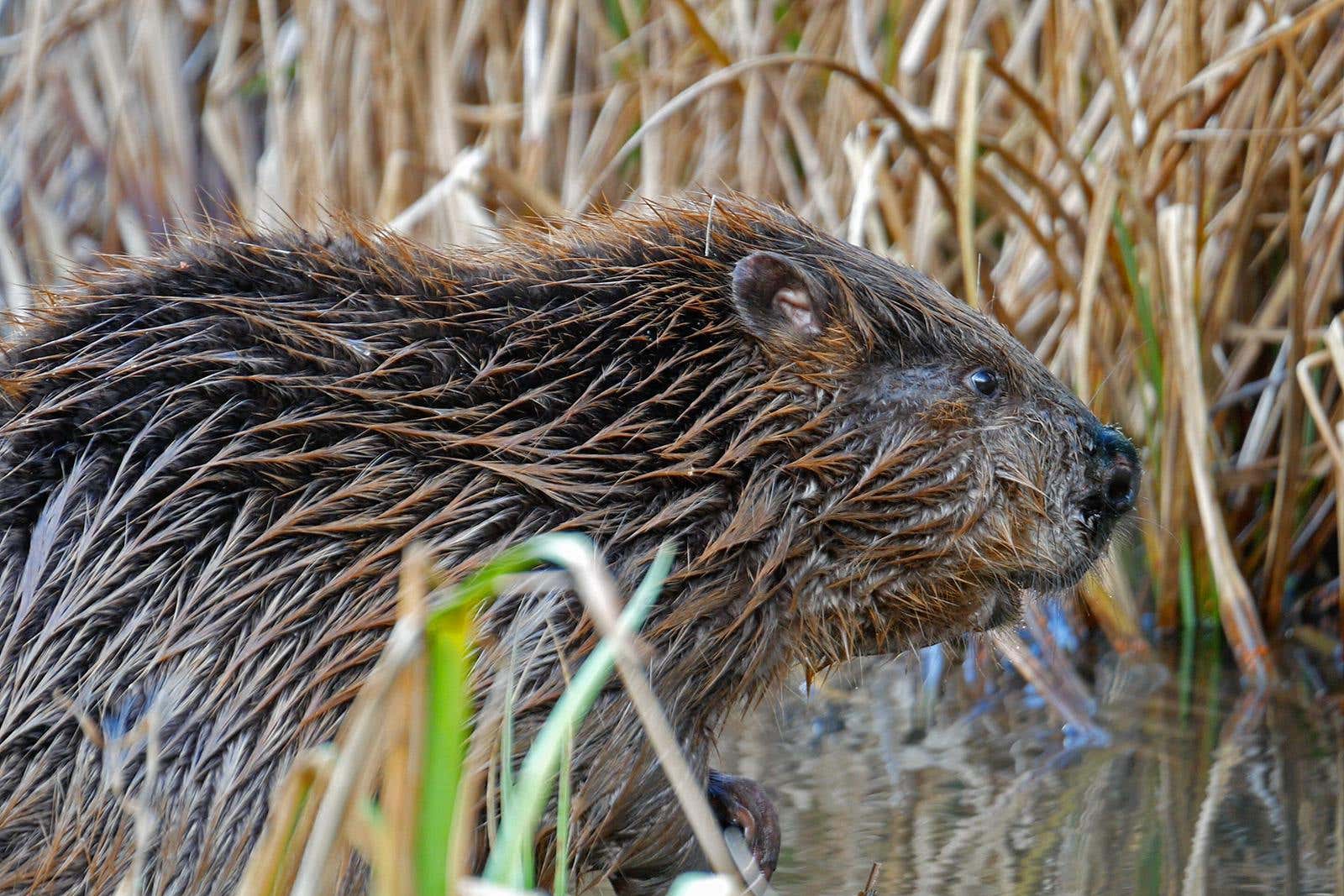Signs of beavers living by Dorset river confirmed by wildlife trust
The presence of the dam-making animals were confirmed after a recently planted tree was felled.

Your support helps us to tell the story
From reproductive rights to climate change to Big Tech, The Independent is on the ground when the story is developing. Whether it's investigating the financials of Elon Musk's pro-Trump PAC or producing our latest documentary, 'The A Word', which shines a light on the American women fighting for reproductive rights, we know how important it is to parse out the facts from the messaging.
At such a critical moment in US history, we need reporters on the ground. Your donation allows us to keep sending journalists to speak to both sides of the story.
The Independent is trusted by Americans across the entire political spectrum. And unlike many other quality news outlets, we choose not to lock Americans out of our reporting and analysis with paywalls. We believe quality journalism should be available to everyone, paid for by those who can afford it.
Your support makes all the difference.Beavers have been found to be living on the River Stour in Dorset in the latest sign of a comeback by the dam-making mammal.
Dorset Wildlife Trust has confirmed that a recently planted tree had been felled by a beaver although it was unable to determine how many were living in the area.
A spokesman said: “Recent evidence indicates that beavers are now living on the River Stour in Dorset.
“Beaver feeding signs have been discovered in several areas along the Stour and are a clear sign that beavers are present along the river, but in unknown numbers and distribution.
“One discovery by a member of the public came from the banks of the River Stour near Gillingham.
“The interesting find was on a section of riverbank where Gillingham Action for Nature Group (Gang) had previously participated in some tree planting.
“One of the trees, planted around 13 years ago, was discovered felled and Dorset Wildlife Trust were called to verify the field sign and confirmed it was the work of a beaver.”
The spokesman said that Eurasian beavers were making a comeback in the UK and in October 2022 they were officially recognised as a resident native species in England once again and afforded European protective status having previously been hunted to extinction more than 400 years ago.
Beavers are the original coppicers who promote much needed diversity amongst tree growth and its great encouragement for our conservation work
He added: “The origin of the beavers in the Dorset Stour is unknown, although there are beavers living in neighbouring river catchments to the north in Somerset and animals could have made their way through the landscape.”
Bob Messer, co-ordinator of Gang said: “It’s very exciting to find one of the 40 native black poplar we planted in 2011 felled by a beaver and to see other beaver signs in our local nature reserve managed by Gang.
“Beavers are the original coppicers who promote much-needed diversity amongst tree growth and it’s great encouragement for our conservation work.“We have had talks about the positive effects of beavers on wildlife from research on the River Otter catchment in Devon. We can now dream of the same effects here in North Dorset.”
The Trust spokesman said that a Beaver Management Group had been set up to help local residents cope with any conflicts created by the presence of beavers which are seen as a “keystone species” whose natural habitats can benefit other wildlife.
Dorset Wildlife Trust’s Rivers Conservation Officer, Steve Oliver said: “We should have all grown up alongside beavers, but sadly we haven’t. Beaver Management Groups provide important initial support to communities who are learning to live alongside beavers once again.”